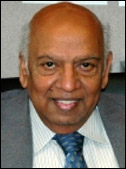ABSTRACT
We analyze and study the beginning of a new electrical engineering department, supported by an NSF Departmental Level Reform award, within a new College of Engineering in the 21st Century and also describe the academic approach and influences of an innovative, cognitive-based approach to curriculum development. In addition, the approach taken utilized open-ended projects distributed over the four years as pedagogical and motivational tools. Furthermore, the curriculum encourages a global-minded entrepreneurship approach as well as reports and presentations associated with learning activities.
The electrical engineering program begins by emphasizing the importance of recognizing how one learns and what one’s preferred styles are, as well as the convergence and reinforcement of the classical domains of learning in active learning. In teaching this program we draw from affective, psychomotor, and cognitive self awareness to emphasize ethics, professionalism and engineering practices, creativity, acceptance of globalization, and consideration of social and environmental issues as part of a life-long learning career. Students graduating from this program are all well-received by industry and graduate programs.
Click for Full-Text PDF Article.



